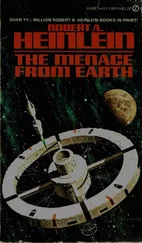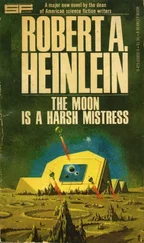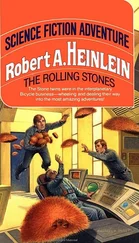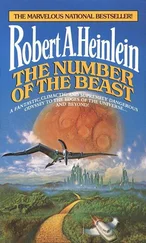Robert Heinlein - The Past Through Tomorrow
Здесь есть возможность читать онлайн «Robert Heinlein - The Past Through Tomorrow» весь текст электронной книги совершенно бесплатно (целиком полную версию без сокращений). В некоторых случаях можно слушать аудио, скачать через торрент в формате fb2 и присутствует краткое содержание. Жанр: Фантастика и фэнтези, на английском языке. Описание произведения, (предисловие) а так же отзывы посетителей доступны на портале библиотеки ЛибКат.
- Название:The Past Through Tomorrow
- Автор:
- Жанр:
- Год:неизвестен
- ISBN:нет данных
- Рейтинг книги:5 / 5. Голосов: 1
-
Избранное:Добавить в избранное
- Отзывы:
-
Ваша оценка:
- 100
- 1
- 2
- 3
- 4
- 5
The Past Through Tomorrow: краткое содержание, описание и аннотация
Предлагаем к чтению аннотацию, описание, краткое содержание или предисловие (зависит от того, что написал сам автор книги «The Past Through Tomorrow»). Если вы не нашли необходимую информацию о книге — напишите в комментариях, мы постараемся отыскать её.
The Past Through Tomorrow — читать онлайн бесплатно полную книгу (весь текст) целиком
Ниже представлен текст книги, разбитый по страницам. Система сохранения места последней прочитанной страницы, позволяет с удобством читать онлайн бесплатно книгу «The Past Through Tomorrow», без необходимости каждый раз заново искать на чём Вы остановились. Поставьте закладку, и сможете в любой момент перейти на страницу, на которой закончили чтение.
Интервал:
Закладка:
"Halt!"
There is something about a command issued by one who is used to being obeyed which enforces compliance. It may be intonation, or possibly a more esoteric power, such as animal tamers are reputed to be able to exercise in controlling ferocious beasts. But it does exist, and can be used to compel even those not habituated to obedience.
The commuters stopped in their tracks.
Gaines continued, "Remain in the restaurant until we are ready to evacuate you. I am the Chief Engineer. You will be in no danger here. You!" He pointed to a big fellow near the door. "You're deputized. Don't let anyone leave without proper authority. Mrs. McCoy, resume serving dinner."
Gaines strode out the door, Blekinsop tagging along. The situation outside permitted no such simple measures.
The hundred mile strip alone had stopped; a few feet away the next strip flew by at an unchecked ninety-five miles an hour. The passengers on it flickered past, unreal cardboard figures.
The twenty-foot walkway of the maximum speed strip had been crowded when the breakdown occurred. Now the customers of shops, of lunchstands, and of other places of business, the occupants of lounges, of television theatres-all came crowding out onto the walkway to see what had happened. The first disaster struck almost immediately.
The crowd surged, and pushed against a middle-aged woman on its outer edge. In attempting to recover her balance she put one foot over the edge of the flashing ninety-five mile strip. She realized her gruesome error, for she screamed before her foot touched the ribbon.
She spun around, and landed heavily on the moving strip, and was rolled by it, as the strip attempted to impart to her mass, at one blow, a velocity of ninety-five miles per hour-one hundred and thirty-nine feet per second: As she rolled she mowed down some of the cardboard figures as a sickle strikes a stand of grass. Quickly, she was out of sight, her identity, her injuries, and her fate undetermined, and already remote.
But the consequences of her mishap were not done with. One of the flickering cardboard figures bowled over by her relative momentum fell toward the hundred mile strip, slammed into the shockbound crowd, and suddenly appeared as a live man-but broken and bleeding, amidst the luckless, fallen victims whose bodies had checked his wild flight.
Even there it did not end. The disaster spread from its source, each hapless human ninepin more likely than not to knock down others so that they fell over the danger-laden boundary, and in turn ricocheted to a dearly bought equilibrium.
But the focus of calamity sped out of sight, and Blekinsop could see no more. His active mind, accustomed to dealing with large' numbers of individual human beings, multiplied the tragic sequence he had witnessed by twelve hundred miles of thronged conveyor strip, and his stomach chilled.
To Blekinsop's surprise, Gaines made no effort to succor the fallen, nor to quell the fear-infected mob, but turned an expressionless face back to the restaurant. When Blekinsop saw that he was actually re-entering the restaurant, he plucked at his sleeve. "Aren't we going to help those poor people?"
The cold planes of the face of the man who answered him bore no resemblance to his genial, rather boyish, host of a few minutes before. "No. Bystanders can help them - I've got the whole road to think of. Don't bother me."
Crushed, and somewhat indignant, the politician did as he was ordered. Rationally, he knew that the Chief Engineer was right-a man responsible for the safety of millions cannot turn aside from his duty to render personal service to one-but the cold detachment of such viewpoint was repugnant to him.
Gaines was back in the restaurant "Mrs. McCoy, where is your get-away?"
"In the pantry, sir."
Gaines hurried there, Blekinsop at his heels. A nervous Filipino salad boy shrank out of his way as he casually swept a supply of prepared green stuffs onto the floor and stepped up on the counter where they had rested. Directly above his head and within reach was a circular manhole, counterweighted and operated by a handwheel set in its center. A short steel ladder, hinged to the edge of the opening was swung up flat to ceiling and secured by a hook.
Blekinsop lost his hat in his endeavor to clamber quickly enough up the ladder after Gaines. When he emerged on the roof of the building. Gaines was searching the ceiling of the roadway with a pocket flashlight He was shuffling along, stooped double in the awkward four feet of space between the roof underfoot and ceiling.
He found what he sought, some fifty feet away-another manhole similar to the one they had used to escape from below. He spun the wheel of the lock and stood up in the space, then rested his hands on the sides of the opening and with a single. lithe movement vaulted to the roof of the roadways. His companion followed him with more difficulty.
They stood in darkness, a fine, cold rain feeling at their faces. But underfoot, and stretching beyond sight on each hand, the sun power screens glowed with a faint opalescent radiance, their slight percentage of inefficiency as transformers of radiant sun power to available electrical power being evidenced as a mild phosphorescence. The effect was not illumination, but rather like the ghostly sheen of a snow covered plain seen by starlight.
The glow picked out the path they must follow to reach the rain-obscured wall of buildings bordering the ways. The path was a narrow black stripe which arched away into the darkness over the low curve of the roof. They started away on this path at a dog trot, making as much speed as the slippery footing and the dark permitted, while Blekinsop's mind still fretted at the problem of Gaines' apparently callous detachment. Although possessed of a keen intelligence his nature was dominated by a warm, human sympathy, without which no politician, irrespective of other virtues or shortcomings, is long successful.
Because of this trait he distrusted instinctively any mind which was guided by logic alone. He was aware that, from a standpoint of strict logic, no reasonable case could be made out for the continued existence of the human race, still less for the human values he served.
Had he been able to pierce the preoccupation of his companion, he would have been reassured. On the surface Gaines' exceptionally intelligent mind was clicking along with the facile ease of an electronic integrator-arranging data at hand, making tentative decisions, postponing judgments without prejudice until necessary data were available, exploring alternatives. Underneath, in a compartment insulated by stern self-discipline from the acting theatre of his mind, his emotions were a torturing storm of self-reproach. He was heartsick at suffering he had seen, and which he knew too well was duplicated up and down the line. Although he was not aware of any personal omission, nevertheless, the fault was somehow his, for authority creates responsibility.
He had carried too long the superhuman burden of kingship - which no sane mind can carry light-heartedly - and was at this moment perilously close to the frame of mind which sends captains down with their ships. Only the need for immediate, constructive action sustained him.
But no trace of this conflict reached his features.
At the wall of buildings glowed a green line of arrows, pointing to the left. Over them, at the terminus of the narrow path, shone a sign: "ACCESS DOWN." They pursued this, Blekinsop puffing in Gaines' wake, to a door let in the wall, which gave in to a narrow stairway lighted by a single glowtube. Gaines plunged down this, still followed, and they emerged on the crowded, noisy, stationary walkway adjoining the northbound road.
Immediately adjacent to the stairway, on the right, was a public tele-booth. Through the glassite door they could see a portly, well-dressed man speaking earnestly to his female equivalent, mirrored in the visor screen. Three other citizens were waiting outside the booth.
Читать дальшеИнтервал:
Закладка:
Похожие книги на «The Past Through Tomorrow»
Представляем Вашему вниманию похожие книги на «The Past Through Tomorrow» списком для выбора. Мы отобрали схожую по названию и смыслу литературу в надежде предоставить читателям больше вариантов отыскать новые, интересные, ещё непрочитанные произведения.
Обсуждение, отзывы о книге «The Past Through Tomorrow» и просто собственные мнения читателей. Оставьте ваши комментарии, напишите, что Вы думаете о произведении, его смысле или главных героях. Укажите что конкретно понравилось, а что нет, и почему Вы так считаете.









